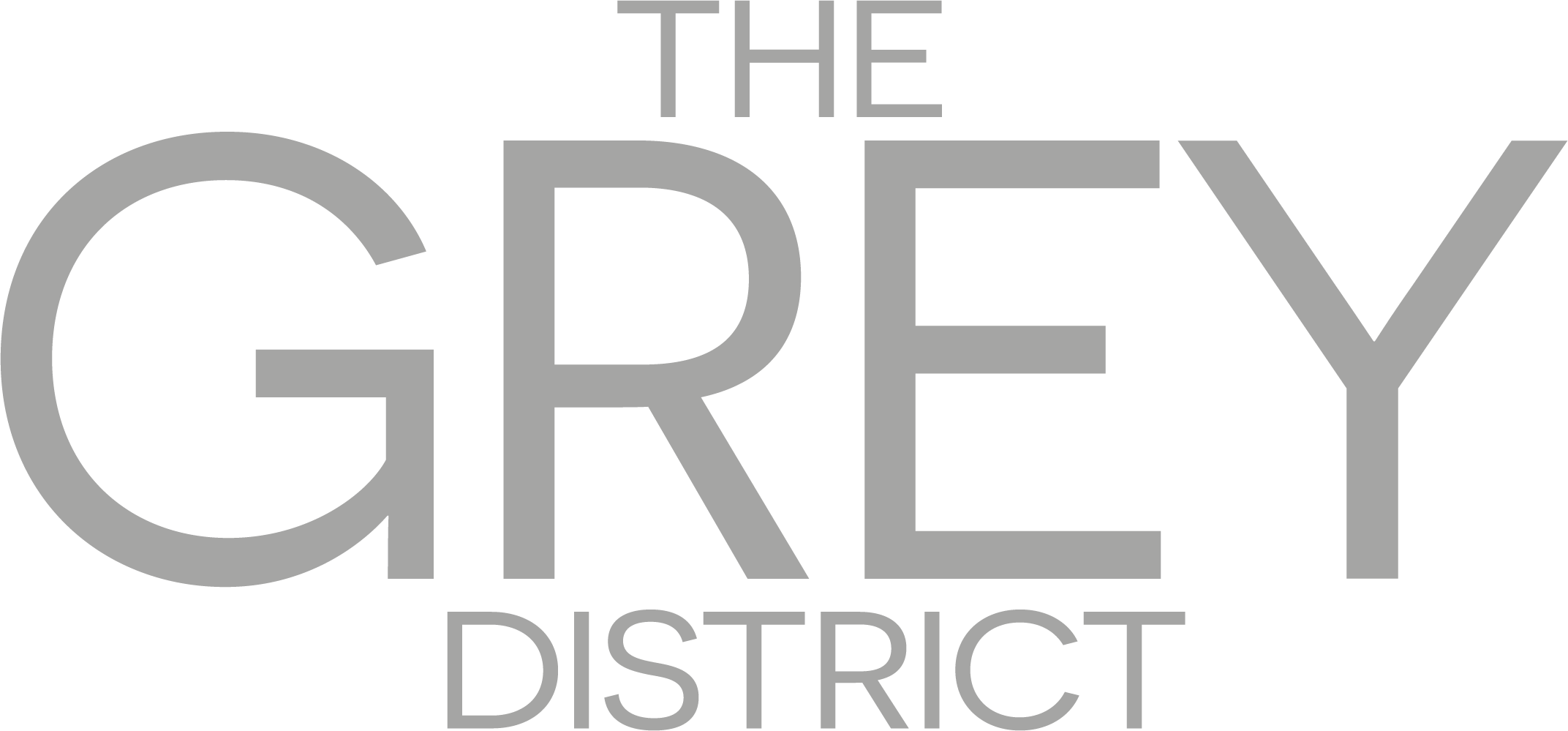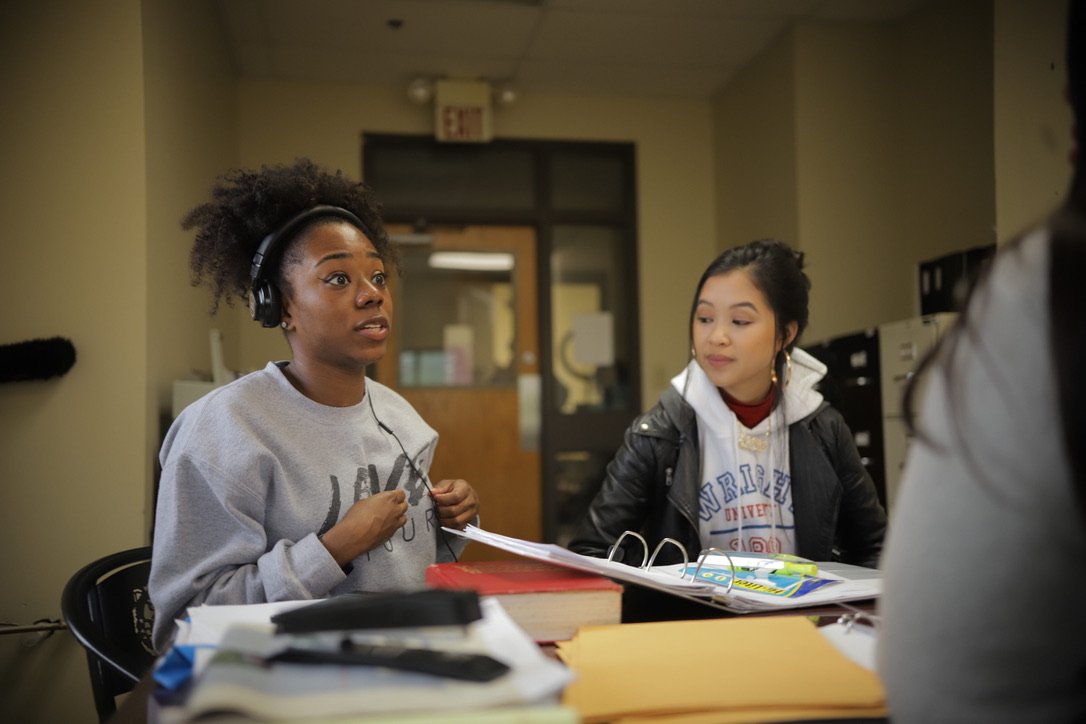Shayla Racquel
The talented writer/director Shayla Racquel discusses her journey as a filmmaker, the “golden age” of black web series, and the future of black women filmmakers.
Let's start with how you got your start in filmmaking.
A couple of different paths led me to where I am today. I was a huge theater geek growing up. I was in the drama club in elementary school and an opera company where we wrote and put on plays. Also, I live with sickle cell, and there was a period when I had a tough time dealing with the condition. My grandmother bought me a camera as a way to express myself during that time. Being the oldest of nine grandchildren, I started videotaping my cousins and making them do plays and music videos and things of that sort. It just served as the perfect outlet for me.
While in high school, my drama teacher suggested I explore stage and film production. I wrote my first play and was allowed to put it on for the school. After that experience, I decided to get behind the camera and never look back. In college, I filmed step shows and videos for Greek organizations on campus as a side hustle. I earned a degree in computer science, but I knew I wanted to go into film full-time.
From a writing perspective, what inspirations do you draw from to develop your characters and stories?
I draw inspiration from just living life. Life itself is a movie. I love listening to the life stories of my friends and family. One thing I receive a lot of praise for is that my dialogue feels realistic. I attribute that to the day-to-day conversations that I have with people. I pull inspiration from those conversations to expand the world of my characters.
Your first web series, Quarter Century, came out during the "black web series boom" on Youtube. There was Black and Sexy TV, Awkward Black Girl [Issa Rae], and many others making strides in digital content. How was that experience, and how did the peak YouTube era share your career moving forward?
It has been inspiring knowing I was a part of that big web series boom and seeing all the amazing things from the people who were also a part of that experience. The platform opened the world for us. It gave us a space to complete a project and get it out there. No one had a huge budget. We grabbed a $200 camera, and three of our friends made boom poles out of broomsticks and bought a little $100 microphone. The content provided people with something they had never seen before at a time when black media was scarce and redundant.
Awkward Black Girl was a huge foundational piece to Insecure, and those who are true Awkward Black Girl fans could see the similarities and see how it was built upon for the [HBO]series. I used Quarter Century as part of my reel for film school. I think it shows my raw talent in writing, and that is what that era was about… raw natural talent.
The process for your short film, Riverment, is an excellent example of the patience and tenacity it takes to get a project made and distributed. Can you give us some insight into the process of getting this project funded, created, and released to the public?
Riverment started from an idea in 2015. The story concept came from a conversation with my grandmother about the generational differences between black women in her day and black women today. It took me a year to complete the script. We began crowdfunding in the summer of 2016 and went into principal photography that Fall. Everything that could have gone wrong on set went wrong.
We blew through the entire $21,000 we raised through crowdfunding.
I pushed back my graduation from film school a couple of years, and we started holding funding events and applying for grants. After a much-needed break, the two producers and I reconvened and decided to do a couple more fundraisers to finish the project. We raised enough money to complete the project and resumed shooting in March 2017. We wrapped in April and went into postproduction for a year. During that time, we collaborated with different schools holding screeners for black history month. We finally finished the project in the spring of 2018 and hit the festival circuit for two years. I'm still shocked at the reception we received because the project is technically a student film that we decided we wouldn't treat like a student film.
The process was long, challenging, and grueling, but it taught me tenacity. This film took us seven years to make because when you truly believe in the craft and want it to look a certain way, you will have to invest the money, time, and energy into it. We started reaping the benefits of Riverment in 2019. In 2021, we began seeing deals that would recoup the money it took to make it. I'm happy to say we recently signed a five-figure deal with Comcast. I am so proud of the project and the doors it has opened for every person who worked on it.
What was the most memorable response that you've received from your work?
The most memorable one for me was the BronzeLens Festival. We were nominated for Best Students Short, and the film we were up against won a Student Oscar. I thought, "We're not going to win it, but it's cool to be in the same vicinity as a film that won an award on that level. I went to the award ceremony just to be there. When my category came up, they announced me as the award's winner. Seeing filmmakers that I respect and am inspired by literally screaming with excitement for me, and I'm screaming because I'm in Atlanta, and I assumed I was not going to win. Walking on the stage and giving a speech was an exhilarating moment. That experience taught me always to recognize my worth.
Another memorable response is being selected as a top ten finalist for the women's directing program in partnership with Shonda Rhimes. Although I did not win the competition, Tom Verica, who is Rhimes, showrunner for Bridgeton (also played Viola Davis character's husband on How to Get Away with Murder), contacted me to set up a meeting. He loved what I created and still wanted to serve as my mentor. To this day, we have quarterly meetings and a great relationship.
What is the future of black women filmmakers?
What's interesting is we're living the future we all imagined for ourselves. We are hitting strides and finally getting the budget to create and tell our stories fully. While that is happening, I'm still hearing stories about our voices being stifled, told certain stories aren't going to sell, or told, "We are looking for the next Get Out."
My hope for the future is that total trust is given to black filmmakers, especially black women filmmakers. What we create defines the culture, and if you really want the customer base and the audience, you should allow us to tell the stories we want without you giving your cultural viewpoint. Give us the money, and let us show you all we can do.
What’s next for Shayla?
I was tapped to be the lead director of this new series. It was a series pilot called Southern Fried Rice. This project is a drama about a Korean American girl adopted by Southern black parents. She decides to follow in her parents' footsteps and attend an HBCU. There's a conversation about cultural appropriation versus appreciation. What is culture, and how culture can be fluid. We are working to find a network home for this project soon.
I was an executive producer and writer of a thriller comedy called Robinhood. The story is about a succubus who steals the belongings of unsuspecting men to quench her thirst for their souls. Robinhood featured the lovely Gail Bean (Snowfall, Insecure, P-Valley) and Daniel Augustin (How I Met Your Father), and Bianca Bethune (Bad Boys for Life). This project is currently on the festival circuit.
How would you describe your future in three words?
Vivid. Uplifting. Blessed.
For more on Shaya, please visit shaylaracquel.com and follow on social @shaylaracquel




